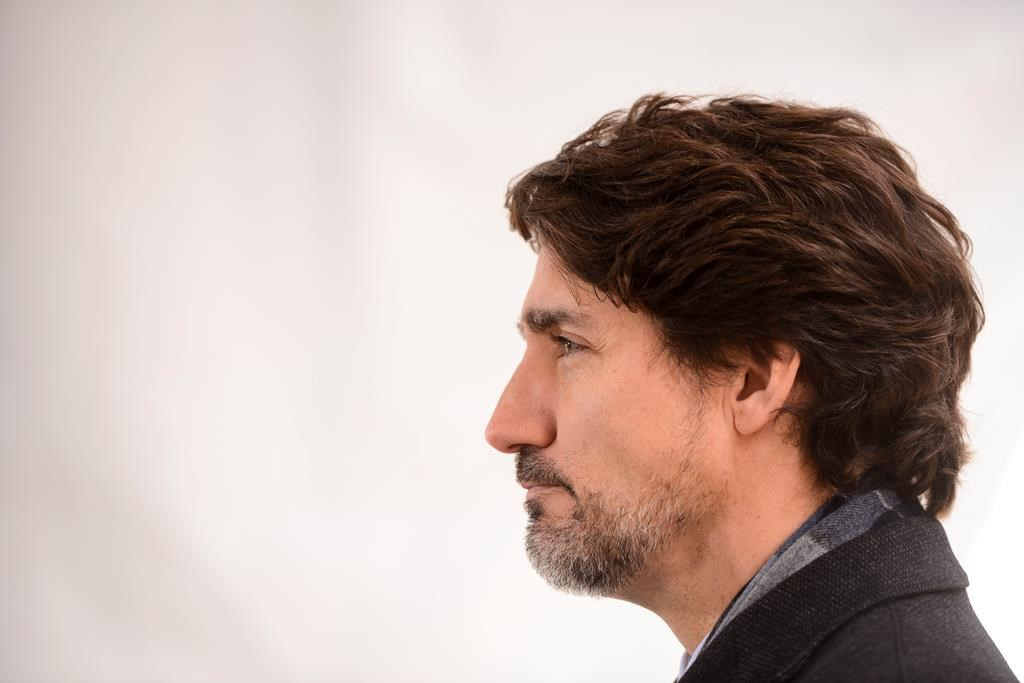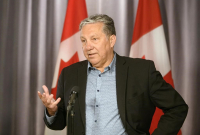Support strong Canadian climate journalism for 2025
Northern leaders and businesses are saying $130 million from Ottawa to shore up supply chains and health care during the COVID-19 pandemic can't come soon enough.
Nunavut Premier Joe Savikataaq said his territory made its first call for help in mid-March.
"Four weeks is a long time to wait," he said.
On Tuesday, Ottawa announced $73 million is to go to territorial governments for health and social services. Of that, roughly $18 million is for Yukon, $20 million for the Northwest Territories and $18 million for Nunavut.
Nunavut and the N.W.T. are to receive extra cash for temporary structures to help people self-isolate.
Businesses with needs that aren't met by federal emergency aid such as the wage subsidy program are to receive a total of $15 million.
Northern air carriers are to get $17.3 million to help maintain supplies of food, medicine and other essential goods. Another $25 million is for Nutrition North to subsidize food costs.
Northern Affairs Minister Dan Vandal said the money is on its way.
"It's going to go out near immediately," he said. "Days."
Savikataaq said Nunavut, which has no confirmed COVID-19 cases, will spend the money on personal protective equipment. It will also help pay quarantine costs for Nunavummiut stranded in the south — 230 people were finally able to return home on the weekend.
Nunavut still has no testing equipment and has to wait weeks for results, he said.
"If you do get a case in a community, then that would just not be adequate."
Northwest Territories Premier Caroline Cochrane said her territory will use part of the money to set up virtual health care, so people can consult professionals without having to travel.
"There's less demand on the health centres, less visits, less chances for transmission of COVID-19," she said.
The N.W.T. will also buy protective equipment and improve its testing capacity, she said.
"Having a package to help with the issues specific to the North is a really good sign the federal government is willing to recognize the needs of our residents," Cochrane said.
She pointed out that ice roads are beginning to melt and the support to air carriers will help keep supplies heading North.
Getting the money out quickly is crucial, said Kirt Ejeesiak of the Inuit Business Council.
"For us in the North, we don't have the luxury of having a huge selection of businesses that do the same thing. We need to keep those businesses running."
Last week, Ejeesiak's group said it needed forgivable loans, zero-interest lines of credit and fewer restrictions on the wage subsidy program.
Vandal said the $15 million announced Tuesday doesn't have to be repaid.
"(The business money) is to help them stay afloat and it's non-repayable."
Yukon Premier Sandy Silver said the funding addresses specific concerns from his government.
"Today’s announcement of further supports for the territories is appreciated. Aspects of this announcement are in direct response to requests we have made," he said in a statement.
Vandal said the health-care money comes with few strings and is designed to let the territories decide where to spend it. He said future funding announcements are likely.
"I'm not under any delusion that this is going to be the end of it."
That's good, said Savikataaq, who noted Nunavut had asked for $42 million.
Northern air carrier Canadian North said it was still evaluating the funding.
"This is an encouraging recognition of the essential service we provide and follows our efforts over the last month to have the government take note of our unique role," spokesman Dan Valin said in an email.
Northern communities, because of their remoteness, are considered the most vulnerable if COVID-19 begins to spread to them.
"We don't have the resources to deal with it if we get an outbreak in the communities," Savikataaq said. "It would be hard to isolate people."
So far, there have been eight confirmed cases in Yukon and five in the Northwest Territories.
This report by The Canadian Press was first published April 14, 2020






Comments